Best Neurology Hospitals in Dubai

Nmc Speciality Hospital, Al Nadah
Dubai, United Arab EmiratesMulti-Specialty Hospital
Amman Street , Next to Bait Al Khair Building,
Specialities
457Doctors
61Beds
72







Al Zahra Hospital
Dubai, United Arab EmiratesMulti-Specialty Hospital
Sheikh Zayed Rd
Specialities
457Doctors
60Beds
187









American Hospital
Dubai, United Arab EmiratesMulti-Specialty Hospital
Business Central Towers - Dubai Media City
Specialities
421Doctors
56Beds
252









Fakeeh University Hospital
Dubai, United Arab EmiratesMulti-Specialty Hospital
Dubai Silicon Oasis - Dubai
Specialities
457Doctors
38Beds
350









Saudi German Hospital
Dubai, United Arab EmiratesMulti-Specialty Hospital
Hessa Street 331 West
Specialities
457Doctors
36Beds
114










Burjeel Hospital
Dubai, United Arab EmiratesMulti-Specialty Hospital
Sheikh Zayed Rd Dubai United Arab Emirates
Specialities
457Doctors
24Beds
209










Zulekha Hospital
Dubai, United Arab EmiratesMulti-Specialty Hospital
P.O.Box 48577
Specialities
457Doctors
22Beds
140










Prime Hospital
Dubai, United Arab EmiratesMulti-Specialty Hospital
No. 203, Shk. Saud Building, Opposite Al Reef Mall,
Specialities
457Doctors
17Beds
100




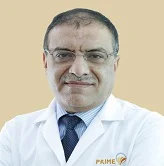





Medeor Hospital 24X7
Dubai, United Arab EmiratesMulti-Specialty Hospital
Sheikh Khalifa Bin Zayed Road
Specialities
421Doctors
9Beds
100









Thumbay Hospital
Dubai, United Arab EmiratesMulti-Specialty Hospital
13th Street, Near Stadium Metro Station, Behind Lulu Hypermarket
Specialities
457Doctors
6Beds
150


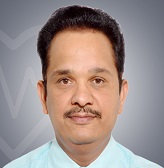

Top 10 Neurology Hospitals Near Dubai
| Hospital | Rating | Doctors | Location |
|---|---|---|---|
| Nmc Speciality Hospital, Al Nadah | ---- | 6161 | Dubai |
| Al Zahra Hospital | ---- | 6060 | Dubai |
| American Hospital | ---- | 5656 | Dubai |
| Fakeeh University Hospital | ---- | 3838 | Dubai |
| Saudi German Hospital | ---- | 3636 | Dubai |
| Burjeel Hospital | ---- | 2424 | Dubai |
| Zulekha Hospital | ---- | 2222 | Dubai |
| Prime Hospital | ---- | 1717 | Dubai |
| Medeor Hospital 24X7 | ---- | 99 | Dubai |
| Thumbay Hospital | ---- | 66 | Dubai |
Questions & Answers on "Neurology" (941)
I am 25 years old male. I had type 1 diabetes mellitus. I had headache resulting from needle prick after blood glucometer test last evening. As of now, I am not experiencing any fever and the dull headache is radiating from back to front. Why does it happen?
Male | 25
It's common to experience headaches following a needle prick, even if no infection develops. Your discomfort might stem from muscle tension or minor irritation around the area. Ensure you stay hydrated and consider gentle stretching to relieve any tightness. Over-the-counter pain relievers can be helpful if discomfort persists. Since you’re managing type 1 diabetes, it’s essential to monitor any unusual symptoms closely. If the headache continues or worsens, don’t hesitate to reach out to a neurologist for further evaluation.
Answered on 9th Feb '25
Read answer
My father has c3 and c6 spine problem he can't move their legs.he can be recover or not
Male | 40
It`s a very serious condition when the legs become immovable because of the c3 and c6 spine issues. One may have symptoms like numbness or weakness. This injury may lead to the sudden onset of conditions such as spinal cord compression. Recovery is possible with treatments like physical therapy or surgery, depending on the situation.
Answered on 17th Nov '24
Read answer
I have headache continuously. In my report of MRI it shows that I have preventricular cyst in my head Medicine is going on but I have headache What should I do
Female | 15
You may be suffering from a ventricular cyst, which is located near the brain. It is a fluid-filled sac near the brain. The reason that it causes headaches is often due to being under pressure. Adding to this, receiving regular medication, I recommend also not to forget being well-hydrated and staying stress-free. Were the pain to continue being severe or getting worse, you should report the headache to your neurologist for a new assessment and even alterations to the medications prescribed.
Answered on 23rd May '24
Read answer
I am forgetful and can't concentrate
Female | 18
It's understandable to feel concerned about memory issues and difficulty focusing. Common causes can include stress, lack of sleep, poor nutrition, or anxiety. To improve your concentration, try establishing a regular sleep schedule, eating balanced meals, and engaging in relaxation techniques such as deep breathing or meditation. Staying organized can also help; consider using lists or reminders. If these strategies don’t lead to improvement, it may be beneficial to consult a neurologist for personalized guidance. Remember, seeking help is a positive step towards feeling better and enhancing your well-being.
Answered on 17th Mar '25
Read answer
I’m a 22 year old female I’ve been having a headache for the past two weeks making it 3 today .its so severe and I have to the doctor took tramadol Unimed pills today I’m now experiencing symptoms of ringing ears and lightheadedness after the pill .Could this be a sign that the pills are working?
Female | 22
The ringing in your ears and feeling dizzy after ingesting Tramadol Unimed pills may be consequences of the medication. It does not imply that the pills have a beneficial effect. These indications are likely to occur as a result of your body being adjusted to the drug. It is crucial to inform your doctor about these new symptoms so they can assist you in finding the best way to deal with your headaches without these side effects.
Answered on 28th Aug '24
Read answer
1 am a 17 year old female i have a puffy face,eyes brain fog ,light head for almost two months i thought it was sugar and stopped consuming sugar but it got worse
Female | 17
These symptoms can be caused by several reasons like allergies, dehydration, lack of sleep, stress, medication side effects. Even medical conditions, such as thyroid problems, anemia, or diabetes could be the reason. Soo its better to get a medical checkup done to find out and get suitable treatment.
Answered on 23rd May '24
Read answer
My mid is struck i solve the question in right a little mistake and i not show how mistake
Male | 20
It seems you're experiencing some mental fatigue or confusion, which is quite common. Factors such as stress, lack of sleep, or even temporary distractions can contribute to this feeling. Symptoms might include difficulty focusing or feeling overwhelmed. To help alleviate this, take regular breaks, practice relaxation techniques, and ensure adequate rest. Engaging in physical activity can also be beneficial. If these challenges persist or significantly impact your daily activities, it may be wise to consult a neurologist. They can provide tailored advice and support, ensuring you feel your best.
Answered on 17th Mar '25
Read answer
I was having a mild UTI infection for which I did a course of k ston, rotec and cefspan for 7 days. Now UTI symptoms have recovered but I feel numbness and pain in legs and feet. My body shakes and I feel weakness I can't bend my head as it feels my body is moving back and forth. Sometimes I also feel acidity, my head and neck hearts
Female | 21
You might be suffering from some adverse reactions to the medications you took for your UTI. Numbness, pain in legs and feet, body shaking, weakness, difficulty bending your head, acidity, and headache can be the side effects of the medicines. In cases like this, the medicines might not be suitable for your body. Make sure to tell your doctor about these symptoms for him to give you the right advice.
Answered on 7th Oct '24
Read answer
my name is lhamo I have come here for my mother's illness, my mother's name is Bimla My mother has heart failure and one of her kidneys is damaged since 2 years, so now my mother's body has become completely stiff suddenly and she is not able to speak anything, she is just breathing, she is not able to eat or drink anything, it has been 2 days Mummy's hands and feet have become cold and she also has epilepsy. It has been 2.5 years and she is 40 years old.
Female | 40
The symptoms you described, such as stiffness, trouble speaking, cold hands and feet, and epilepsy say serious things to me. With her previous medical records including heart failure, kidney damage, and extreme variations, this may be a life-threatening issue. It is of utmost importance for her to get appropriate attention as soon as possible to receive the right treatment and the right care for her. The doctors may need to deal with the heart, kidney, and neurological issues together to make your mother feel better.
Answered on 25th Oct '24
Read answer
When I woke up this morning, I couldn't get out bed. I felt dizziness and total blackouts afterwards. I still lying down. What should I do and what might be the cause of this?
Male | 25
You might be going through orthostatic hypotension. This is a long word that means your blood pressure is too low when you try to stand up. This may lead to you feeling lightheaded and dizzy, and eventually, you might even pass out. To help, try moving stairs at least when you get out of bed, and keep hydrated. If the pain continues, visit a neurologist for a thorough check-up and guidance.
Answered on 11th Oct '24
Read answer
Hello sometimes I have shuttering(not very serious one,but I still have it) when I am talking(,especially when I am nervous or tired, my friend once told me that she had same problem during her childhood and she took medicament( I do not know what it was)and then it went away itself, i am curious if there is some medicament which help me take this shuttering away forever?
Female | 24
You experience stuttering, where speaking smoothly feels difficult. Maybe you feel nervous or tired. For some people, stuttering improves on its own, especially children. However, therapies, and techniques exist to support fluent speech. Speech therapy is one option. It's crucial to discuss with a speech therapist or doctor to find the appropriate path for you.
Answered on 11th Sept '24
Read answer
My uncle met with an accident few days ago . He had a head injury. After few days he had lost his memory and also behaving aggressively
Male | 65
Your uncle may suffer from a disorder known as Post-Traumatic Amnesia (PTA) after an injury to the head. Memory loss and aggressive behavior are pervasive symptoms. It is because the main point gets violated, hence, it can be the cause of behavioral changes. Rest, avoiding stress, and patience are necessary for your uncle's recovery.
Answered on 11th Nov '24
Read answer
Can i marry a girl who having sero negative Nmo disease? Is nmo effect pregnancy?
స్త్రీ | 25
NMO, short for Neuromyelitis Optica, is an autoimmune disease that hits the nervous system and is likely to be rare. It is marked by the presence of a range of symptoms such as for example vision impairment, muscle weakness, and bladder control problems. NMO by itself is indeed not the reason for pregnancy issues but making an appointment with the right doctor to talk about these issues is fundamental. They can assist in treating the disease.
Answered on 27th June '24
Read answer
bacpan se problam hai lekin kal M.R.I karwaya tab pata chala hume beti ko brain tumar hai kya iska ilaj ho sakta hai
Female | 21
You should immediately consult a neurologist or neurosurgeon to know the brain tumor size and type. The treatment options will vary based on the location, size, and type of tumor, among others. Only the best doctor can design the most suitable treatment plan.
Answered on 23rd May '24
Read answer
im facing a problem in which my legs start to become hot for just of 5-10 seconds. Whats the reason behnid this?
Male | 27
Many people feel sudden warmth, called hot flashes. These happen frequently for women, but men can get them too. Hormonal changes or reactions cause hot flashes. Stress, caffeine, or alcohol may trigger them. Staying cool, avoiding spicy foods, and relaxing can help manage hot flashes. If they continues being problematic, speak to your doctor.
Answered on 16th Oct '24
Read answer
I am patient of epilepsy last from 14 to 15 years. I have consulted many neurologist during this time but no recovery. Can you please help me.?
Female | 29
The condition of the brain which is responsible for recurring seizures is called Epilepsy. Seizures may differ from one individual to another who may either have a staring spell, muscle jerk, or a blackout. Generally, it takes a long time to get well with the medication, or in some cases, even surgery is required. Do not forget to adhere to your neurologist's recommendations for the best treatment possible and continue your checkups regularly.
Answered on 4th Sept '24
Read answer
I am 27 year old I have headache in right last 1 year
Female | 27
Persistent headaches can stem from various sources, including tension, migraines, or even vision issues. It's essential to consider accompanying symptoms, such as nausea or light sensitivity, to better understand your situation. Maintaining hydration, practicing relaxation techniques, and ensuring regular sleep can be beneficial. However, since you've been experiencing this discomfort for an extended period, I strongly encourage you to consult a healthcare professional. They can provide a thorough evaluation and discuss tailored treatment options.
Answered on 21st Jan '25
Read answer
Dear Sir, Below i am sending my father MRI report, kindly guide me. MRI REPORT – BRAIN WITH CONTRAST TECHNIQUE: T1W Sagittal, DWI - b1000, ADC, GRE T2W FS Axial, MR Angiogram, FLAIR Axial & Coronal Post contrast images after administration of 5 ml of gadolinium contrast. OBSERVATION: The study reveals an intrasellar mass lesion, with enlargement of the right half of the anterior pituitary gland, extending to the suprasellar cistern. The mass lesion is predominantly isointense to gray matter on T1-weighted images. On T2-weighted images the mass is predominantly isointense to gray matter with internal areas of T2 hyperintensity suggestive of ?necrosis/cystic change. Dynamic postcontrast images revealed decreased/delayed enhancement of the mass lesion as compared to the rest of the pituitary gland. The mass lesion measures 1.2 AP x 1.6 TR x 1.6 SI cm. Superiorly the mass displaces the infundibulum to the left side. A clear CSF plane of cleavage is seen between the superior aspect of the mass lesion and the optic chasm. No significant parasellar extension of the mass lesion is seen. The cavernous segment of both internal carotid arteries show normal flow void. The mass causes mild thinning of the floor of the sella turcica, with slight bulge toward the roof of the sphenoid sinus. MR findings likely represent pituitary adenoma. Confluent and discrete areas of T2/flair hyperintensity are seen in bilateral supratentorial periventricular and subcortical deep white matter, likely representing nonspecific ischemic changes with a combination of leukoariosis, microvascular ischemic changes, lacunar infarcts and prominent perivascular spaces. Basal ganglia and thalami are normal. Midbrain, pons and medulla are normal in signal intensity. The cerebellum appears normal. Bilateral CP angle cisterns are normal. The ventricular system and subarachnoid spaces are normal. No significant midline shift is seen. The cranio-cervical junction is normal. Post-contrast images reveal no other abnormal enhancing pathology. Bilateral maxillary sinus polyps are noted.
Male | 70
THE MRI SHOWS a mass lesion in the pituitary gland. It measures 1.2x1.6x1.6 cm and causes mild thinning of the sella turcica floor . Post-contrast images reveal delayed enhancement of the mass, suggesting PITUITARY ADENOMA.. Bilateral maxillary sinus polyps are noted . ISCHEMIC CHANGES with leukoariosis, microvascular ischemia, lacunar infarcts, and perivascular spaces are present .. Basal ganglia, thalami, and brainstem are normal ..For detailed discussion and treatment plan need to visit a neurosurgeon.
Answered on 23rd May '24
Read answer
Hello, Doctor Name Because of the horrible things i have endured through out my life up until now which kept getting worse without pause Emotions i've felt and the anger that would cease One day, half of my face started jerking (Hemifacial spasm) and i woke up with blood from my ear later i had my cerebral fluid leaking out of my ears nose eyes From then whenever I get angry I would have Seizures and later i'd hear loud BANG in my Brain followed by blood leaking from my ears and i believe that is what is called a ruptured cerebral aneurysm and I have had about 20 or 21 of them and maybe more and I became ill with other illnesses which if god you reply to me I will give to you I have not been given treatment Since I lack the fund for medical treatment I want to pass away a faithful man to god Please tell me how long do i have until i will pass away from theses illnesses so i may have hope that i will pass away soon God willing Thank you
Male | 23
You should consult for a second opinion right away. Hemifacial spasm can be a symptom of another neurological condition, including an aneurysm. A ruptured cerebral aneurysm is a medical emergency that requires to be treated promptly. Speculating on life expectancy without the proper medical evaluation is inappropriate. As soon as you can, see a neurologist.
Answered on 23rd May '24
Read answer
My son 21 years old. Struggling with migrains. Have now started to feel pressure in forehead and dizzy. Have just now taken paracetamol 1 gram. Is it ok to take migraine medication he got from doctor last time now already? He is really scared to wake up and get it like last time. It was really bad with vomiting.
Male | 21
Weakness and sensitivity to light, as well as vomiting, may be the result of migraines. He is on paracetamol which is great, but he can also take the migraine medication his doctor prescribed if it is the case, even though it is soon after the paracetamol. It is important that the doctor’s guidance is adhered to and the medication is taken as instructed which will also help to prevent the next similar episode from happening.
Answered on 21st Oct '24
Read answer
Get Free Assistance!
Fill out this form and our health expert will get back to you.